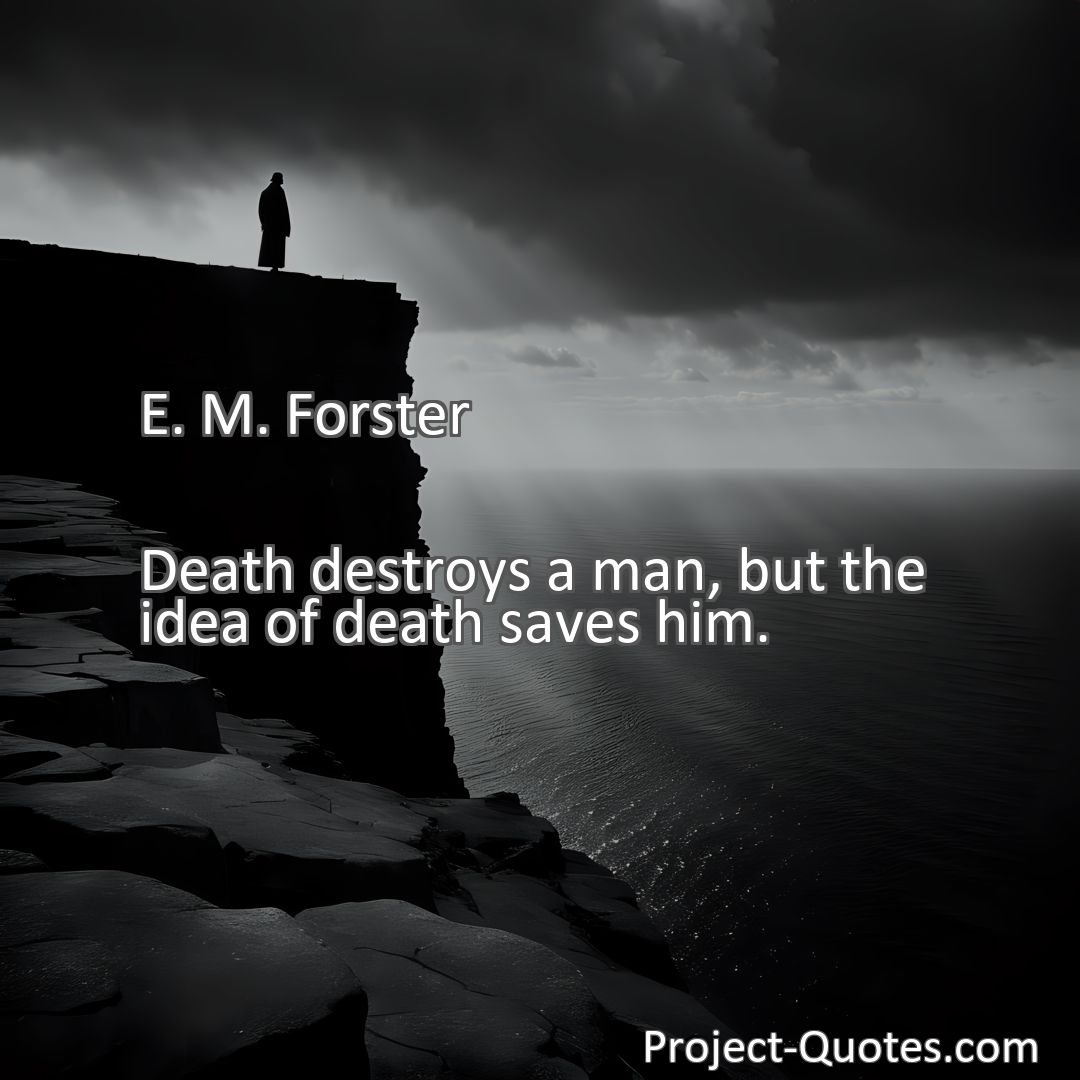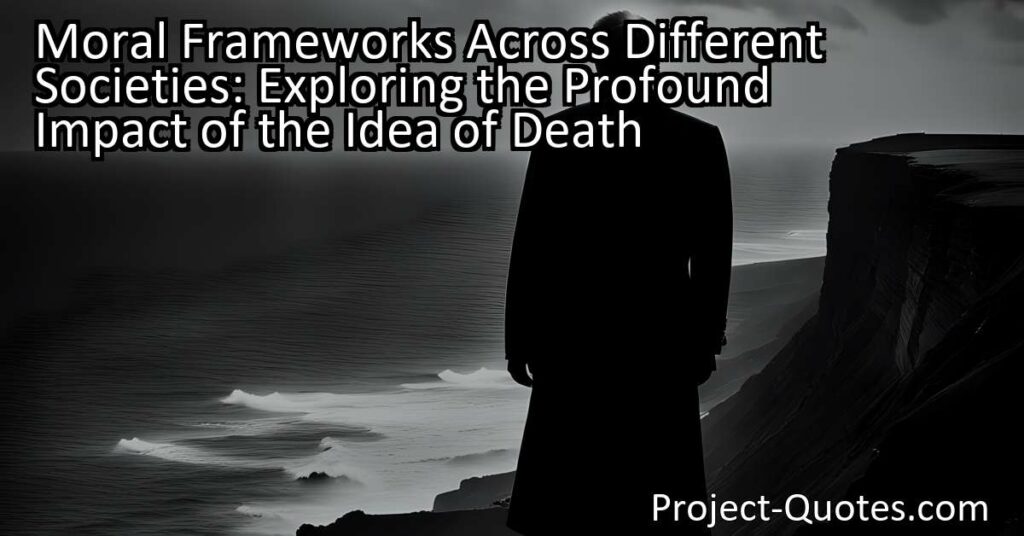Death destroys a man, but the idea of death saves him.
E. M. Forster
Moral Frameworks Across Different Societies: Exploring the Profound Impact of the Idea of DeathThe idea of death has a profound impact on our lives and shapes our moral frameworks in different societies. While death can destroy us physically, it saves us spiritually and emotionally by reminding us of the preciousness of life. It influences our culture, art, and ethical understanding, prompting us to live authentically, embrace meaningful connections, and find solace in the face of adversity.
Table of Contents
Meaning of Quote – Death destroys a man, but the idea of death saves him.
In the words of renowned author E. M. Forster, “Death destroys a man, but the idea of death saves him.” At first glance, this quote may seem contradictory and perplexing. How could death both destroy and save? However, upon further exploration, we begin to unravel the profound meaning hidden within these words. It is a reflection on the paradoxical nature of our mortality and the profound impact it has on our lives.
Death, as Forster suggests, has the power to destroy an individual. It is the ultimate inevitability that awaits each and every one of us. From the moment we are born, we embark on a journey that, despite our best efforts, will ultimately lead to our demise. The fragility and transience of life can fill us with a sense of despair and fear. It is the great unknown, a darkness that surrounds us, casting its shadow on our every thought and action.
However, it is precisely the awareness of our mortality that can save us. The idea of death serves as a constant reminder of the preciousness and ephemeral nature of life. It pushes us to question our existence, to seek meaning and purpose in our limited time on this earth. In this sense, the recognition of our mortality becomes a catalyst for personal growth and self-reflection.
When confronted with the reality of death, we are forced to confront our own priorities and reevaluate the importance we place on certain aspects of our lives. It compels us to live authentically, embracing the things that truly matter to us. We begin to shed the layers of societal expectations and external validation, and instead, focus on cultivating relationships, pursuing our passions, and finding fulfillment in the present moment.
The idea of death acts as a wake-up call, urging us to make the most of our time here. It prompts us to let go of trivial grievances, forgive those who have wronged us, and mend broken relationships. It encourages us to take risks and step outside of our comfort zones, knowing that life is too short to remain stagnant. It inspires acts of kindness and compassion, as we recognize that we are all interconnected in the face of our shared mortality.
Furthermore, the idea of death can also be a source of solace and comfort in times of pain and suffering. It reminds us that in the grand scheme of things, our troubles and hardships are temporary. It offers a perspective that allows us to find meaning in adversity, knowing that even the darkest moments in life are an integral part of our personal growth and transformation.
Forster’s quote also raises questions about the role of death in shaping our society and culture. Throughout history, death has been a prevalent theme in art, literature, and religious beliefs. It has been used as a motif to explore the human condition, the meaning of life, and the existence of an afterlife. From ancient Egyptian funerary rituals to Shakespeare’s tragedies, death has served as a muse for creativity and contemplation.
In addition to its artistic significance, the idea of death has influenced various cultural practices and customs. Funerary rites and mourning rituals provide a framework for the grieving process, allowing individuals to honor the deceased and find closure. These traditions reflect the universal need for humans to make sense of death and find comfort in the face of loss.
Moreover, the idea of death has played a crucial role in shaping ethical and moral frameworks across different societies. The recognition of our own mortality prompts us to reflect on the consequences of our actions and the legacy we leave behind. It encourages us to lead lives of integrity and virtue, as we strive to make a positive impact on the world.
In conclusion, E. M. Forster’s quote, “Death destroys a man, but the idea of death saves him,” encapsulates the paradoxical nature of our mortality. While death has the power to destroy us physically, the idea of death has the potential to save us spiritually and emotionally. It reminds us of the preciousness of life, prompting us to live authentically, embrace meaningful connections, and find solace in the face of adversity. It influences our culture, art, and ethical frameworks, shaping the way we understand and navigate the complexities of our existence. Ultimately, it is through our acknowledgment and acceptance of death that we can truly appreciate the beauty and significance of being alive.
I hope this quote inspired image brings you hope and peace. Share it with someone who needs it today!


